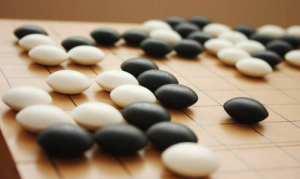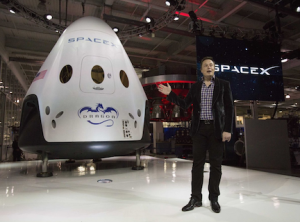 According to a 2013 Oxford Martin School study, nearly 50% of jobs in the US today will have disappeared by 2025 due to artificial intelligence and automation.
According to a 2013 Oxford Martin School study, nearly 50% of jobs in the US today will have disappeared by 2025 due to artificial intelligence and automation.
Many middle management positions will disappear as a consequence.
This is the new reality.
Disruption, which we define as a problem of such amplitude that it interrupts an activity or process, seems to be everywhere:
- Radical evolution of business models. Netflix, Uber, Airbnb.
- Digital hacking. A July 2015 Fortune magazine article documents the debacle hackers created for Sony at all levels of the organization.
- Regulatory changes. In an interview with Charlie Rose this past June, GE Chairman and CEO Jeff Immelt talks about having to be really paranoid in the face of change. In the case of GE, he refers to regulatory changes being an even greater source of disruption than business competition.
- Technological failure. The Fukushima Daiichi nuclear disaster in March 2011 was deemed “manmade” by an independent investigation commission. According to the results of the investigation all of its direct causes were foreseeable because the plant was fundamentally incapable of withstanding the 9.0 magnitude Tōhoku earthquake and resulting tsunami.
So what should we do?
20 years ago former Intel CEO Andrew Grove wrote Only the Paranoid Survive. He wrestled with one of the business world’s great challenges in 1994 when a flaw in his company’s new cornerstone product — the Pentium processor — grew into a front-page controversy that seriously threatened its future.
More than ever we need to be hyper-cautious and invest and monitor closely business intelligence, as well as carefully and regularly do scenario planning.
But in a volatile and complex world that’s not enough. These are chess player’s strategies when we need GO* player’s responses, i.e. constant interaction with a moving environment when the pace of change is such that analytical thinking is no longer enough
In his book “How Google Works” Chairman Eric Schmidt says the same thing in another way. He explains that if you want to deal efficiently with disruption, don’t ask your senior strategist to join the brainstorming sessions, invite your smart creative.
Today we need to tap into another form of intelligence that bridges the gap between the rational mind of the strategist and the instinct of the creative. It is called Intuitive Intelligence.
That’s what soldiers and officers have to master for the battlefield, what the greatest performers have to learn to move audiences of thousands, and what athletes need in order to break Olympic records. High performance professionals are required to do both a lot of analysis and minute study as well as to grow their ability to respond instinctually to unforeseen circumstances through continuous practice and exploration. They all have to develop Intuitive Intelligence to be able to perform at their best in a very unpredictable environment: a war zone, a performance stage or a stadium.
Business life today is very similar.
Today it is no longer as much about strategy as it is about quick adaptation and constant experimentation.
I would recommend making disruptive change the new normal and the instinct of the creative the necessary attribute of today leadership, both in your own way of thinking and throughout your organization. To apply this effectively my three recommendations are:
– Explore with your team what this means for your business model, marketing strategies, organizational design, management culture and leadership style.
– Describe in detail what all of these changes will look like: what are the competencies needed, behaviors to adopt, industries or competitors you can learn from, new products and services likely to appeal to consumers, and new distribution models to leapfrog competition.
– Apply these changes in increments. You will not be able to apply them all at once. Start somewhere, and crack open the new code of business within a limited area of your company.
And if you cannot implement it internally because your current way of doing things is too essential to your existing business, create a sister company, experiment in it with new ways of doing business, keep the link with the parent company tight and learn from it.
I have helped leaders apply all of the above in a number of organizations, of varied sizes and in different industries and continents. It works and delivers results. Contact us if you struggle with these ideas.
*An ancient Chinese board game that is the most popular game in the world today.


